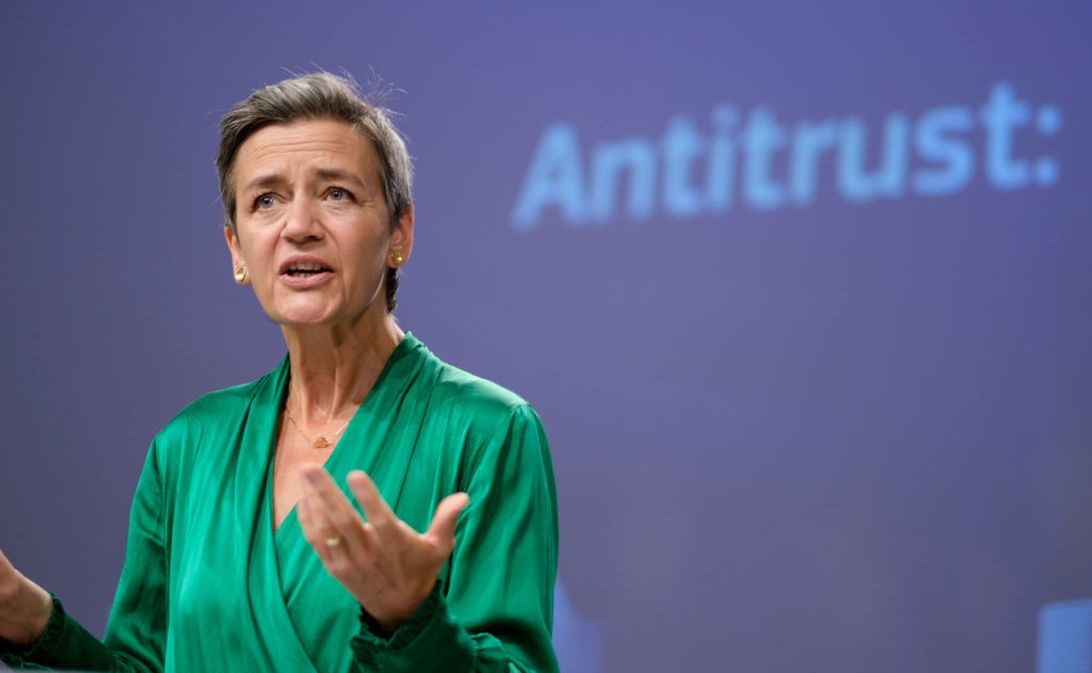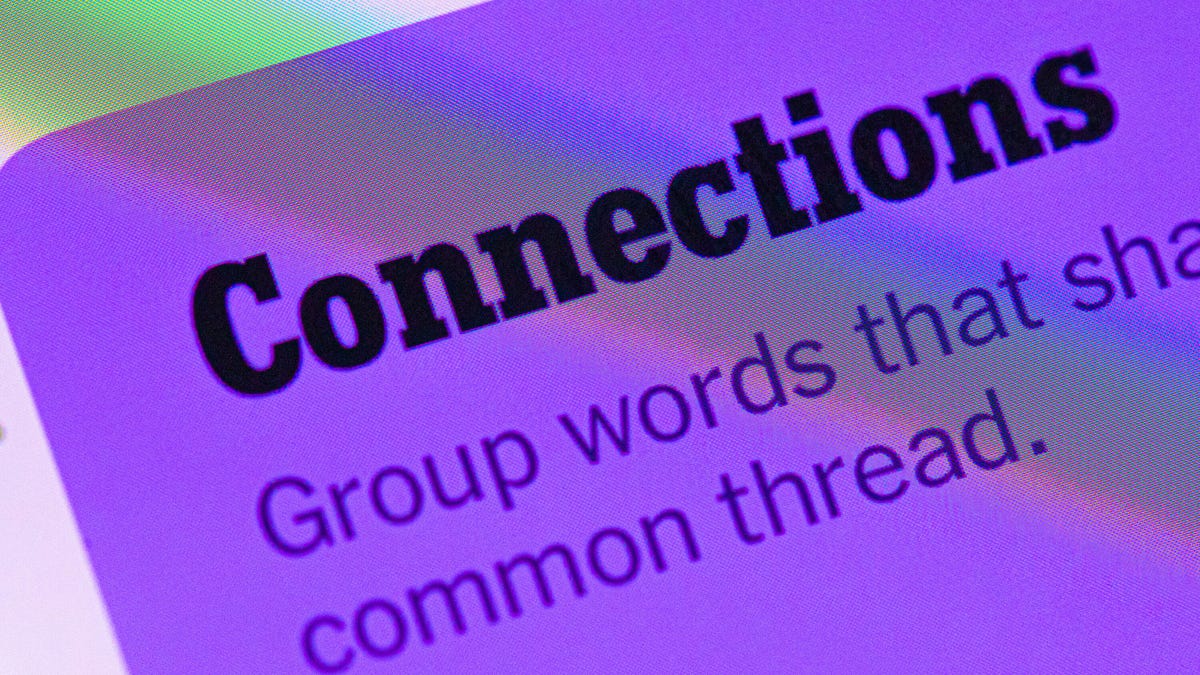Technologies
Europe seeks alignment with US on tech issues ahead of first trade council meeting
Europe is trying to find common ground with the US on issues such as AI, competition and taxation, EU Competition Commissioner Margrethe Vestager said Tuesday at a conference.

The US and Europe may soon be more in sync on tech issues, with the first meeting of the newly formed US-EU Trade & Technology Council due to take place Wednesday in Pittsburgh. In the run-up to the meeting, Margrethe Vestager, the European Competition Commissioner and VP of the EU’s digital project, expressed her hopes for the two powers to find alignment in areas including competition, AI and taxation.
Vestager, who spoke Tuesday at Vox’s Code Conference in Los Angeles, has garnered a reputation for being tough on big tech. That’s largely due to the hefty antitrust fines she’s handed out to tech giants, in particular Google and Amazon, as well as a major tax spat with Apple. Former US President Donald Trump viewed her as an enemy of both America and technology, but she professes to be a fan of both and sees a shared purpose with her current counterparts in the US.
Her «mission,» she said Tuesday at the conference, is «to make sure that technology serves us, not only as consumers but also as citizens.»
In many respects, Vestager’s reputation has also been shaped by the fact Europe has pushed ahead of the US in terms of regulating big tech. The most prominent example of that is the introduction of the General Data Protection Regulation in 2018, which saw an overhaul of Europe’s privacy laws to make them better fit the digital age. One of the law’s hallmark features was meant to be steep fines for tech giants who misuse consumer data. The GDPR has been criticized for not resulting in enough large fines for big tech, as well as being the cause of the large number of privacy pop-ups in the browsers of European web users.
Vestager on Tuesday conceded that improvements were necessary in those regards, but she ultimately defended the legislation, pointing to the broader impact it’s had on the global conversation around citizen’s digital rights.
«The main success of GDPR, is that now privacy is a thing,» she said. «If we had not passed this kind of legislation, I think we would still be in the dark.»
Vestager also noted that since first working with the US, she’s observed a major shift in thinking on the part of lawmakers in the country about privacy. The US isn’t alone in this, she added. «It’s only a question of time before you see … real alignments between democracies on this planet — Europe, the US, India, Canada, Australia, Japan,» Vestager said. «Everyone is now coming on board.»
Seeking alignment with the US was a common thread running through Vestager’s session at Code, as she expressed her hope of finding common ground with her peers in Washington, DC. It’s no secret that Europe and the US struggled to work together during Trump’s presidency. Tensions over taxation caused the US to implement tariffs on a number of major goods exported by Europe as individual countries sought to tax big American tech companies on a more regional basis.
«There has been a complete turnaround with the change of administration, when it comes to saying, It’s important that you pay your taxes,» Vestager said. She added that she hoped that an international agreement was imminent, for corporate taxation and the distribution of taxing rights, «so that businesses pay taxes where they create their value.»
Equally, Vestager said she felt the US and EU were increasingly aligned on competition matters based on President Joe Biden’s July executive order. Biden’s plan for «Promoting Competition in the American Economy» ordered the Federal Trade Commission to bar unfair methods of competition on internet marketplaces. It also seeks to restore Obama-era net neutrality rules and calls for greater scrutiny of mergers, singling out «dominant internet platforms.»
«That kind of signaling is what is encouraging everyone who thinks that fair competition should be the rule in the marketplace,» Vestager said.
One additional priority area for Vestager to coordinate on with the US in Wednesday’s meeting is artificial intelligence. Consumers are most familiar with AI in the form of Amazon’s Alexa, Google’s Assistant and Apple’s Siri, but AI goes beyond smart assistants. It can be used to digitally impersonate real people in the form of deepfakes and spread disinformation, but it’s also expected to transform the way we live.
«In order for that enormous potential to be unleashed, we need to be able to trust it,» Vestager said. This often hasn’t been the case, due to the number of instances in which the technology has been shown to hold bias, she added. «We need to move forward in democracies to change that, because otherwise, artificial intelligence will be turned against us.»
Technologies
Tom Cruise and Brad Pitt Trade Blows in Latest AI Slop Video, and Hollywood Won’t Stand for It
While some Hollywood icons are feeling doom and gloom over the AI-generated clip, labor unions are fighting back with legal threats.

Brad Pitt and Tom Cruise are trading blows in a viral AI-generated clip on social media, sparking backlash from the film industry. Chinese company ByteDance’s new video generation model, Seedance 2.0, allowed people to create fictional videos of real likenesses with short prompts. Irish filmmaker Ruairi Robinson used two lines to generate the clip of Pitt and Cruise fighting.
If ByteDance sounds familiar to you, it’s because the company also owns TikTok internationally, though it recently sold its US ownership of the social media and video-sharing platform to US companies. Oracle, MGX and Silver Lake each hold a 15% stake.
The actors in this latest viral AI slop video still don’t look like perfect re-creations — close-up shots of the fake Brad Pitt’s face, especially, have an «uncanny valley,» dreamlike AI look where the cuts blend into his flesh a little too smoothly. However, a CNET survey from earlier Tuesday showed that while 94% of US adults believe they encounter AI slop on social media, just 44% say they’re confident they can tell real videos from AI-generated ones.
One of the most inflammatory parts of the Pitt-Cruise video is the dialogue, as the computerized facsimiles of the actors fight over a supposed assassination plot regarding Jeffrey Epstein, the convicted sex offender who maintained ties to rich and powerful people worldwide. The two actors’ likenesses became a vehicle to push conspiracy theories that have been picking up steam as the millions of pages of redacted emails, receipts and other documents that make up the Epstein files continue to trickle out of the US Department of Justice.
Hollywood is fighting back as AI-generated content consumes and spits out actor likenesses and copyrighted content alike. Major studios and their labor forces alike have united to push back against the precedent set by the viral AI video.
According to The Hollywood Reporter, the Motion Picture Association demanded that ByteDance «immediately cease its infringing activity» through Seedance. SAG-AFTRA, the labor union that represents Hollywood performers, released a statement on Friday saying it «stands with the studios» in condemning the Seedance video generation model.
The Screen Actors Guild specifically pointed to Seedance’s unauthorized use of members’ faces, likenesses and voices as a threat that could put actors out of work.
«Seedance 2.0 disregards law, ethics, industry standards and basic principles of consent,» the actors’ guild said in its statement.
Representatives for the MPA and SAG-AFTRA didn’t immediately respond to a request for comment.
Similar videos generated by Seedance have depicted Star Wars characters dueling with lightsabers as well as Marvel superheroes Spider-Man and Captain America brawling. Disney issued a cease-and-desist order to ByteDance on Friday in response to these videos, which it alleges constitute copyright infringement, according to the BBC.
A representative for ByteDance didn’t immediately respond to CNET’s request for comment, but issued a statement to the BBC saying it is «taking steps to strengthen current safeguards as we work to prevent the unauthorized use of intellectual property and likeness by users.»
Following the viral incident, ByteDance updated its tool to prevent people from uploading images of real people for AI-generated content, but it remains to be seen how effective that policy will be. Certainly, it won’t curb the output of videos depicting fictional masked or anthropomorphic characters like Spider-Man or Mickey Mouse.
As AI models continue to create mediocre copies of cultural icons, this won’t be the first — or last — legal battleground for AI video generation.
Technologies
Today’s NYT Connections Hints, Answers and Help for Feb. 18, #983
Here are some hints and the answers for the NYT Connections puzzle for Feb. 18 #983.

Looking for the most recent Connections answers? Click here for today’s Connections hints, as well as our daily answers and hints for The New York Times Mini Crossword, Wordle, Connections: Sports Edition and Strands puzzles.
Today’s NYT Connections puzzle was great fun for me, as I’m the co-author of two pop-culture encyclopedias, one about the 1970s, and 1980s and the other about the 1990s. Two of the categories are retro-themed! Read on for clues and today’s Connections answers.
The Times has a Connections Bot, like the one for Wordle. Go there after you play to receive a numeric score and to have the program analyze your answers. Players who are registered with the Times Games section can now nerd out by following their progress, including the number of puzzles completed, win rate, number of times they nabbed a perfect score and their win streak.
Read more: Hints, Tips and Strategies to Help You Win at NYT Connections Every Time
Hints for today’s Connections groups
Here are four hints for the groupings in today’s Connections puzzle, ranked from the easiest yellow group to the tough (and sometimes bizarre) purple group.
Yellow group hint: Farrah hair.
Green group hint: Totally tubular!
Blue group hint: Bock-bock!
Purple group hint: Can refer to a dairy product or a cosmetic.
Answers for today’s Connections groups
Yellow group: Retro hair directives.
Green group: Retro slang for cool.
Blue group: Chicken descriptors.
Purple group: ____ cream.
Read more: Wordle Cheat Sheet: Here Are the Most Popular Letters Used in English Words
What are today’s Connections answers?
The yellow words in today’s Connections
The theme is retro hair directives. The four answers are crimp, curl, feather and tease.
The green words in today’s Connections
The theme is retro slang for cool. The four answers are bad, fly, rad and wicked.
The blue words in today’s Connections
The theme is chicken descriptors. The four answers are bantam, crested, free-range and leghorn.
The purple words in today’s Connections
The theme is ____ cream. The four answers are heavy, shaving, sour and topical.
Technologies
Today’s Wordle Hints, Answer and Help for Feb. 18, #1705
Here are hints and the answer for today’s Wordle for Feb. 18, No. 1,705.

Looking for the most recent Wordle answer? Click here for today’s Wordle hints, as well as our daily answers and hints for The New York Times Mini Crossword, Connections, Connections: Sports Edition and Strands puzzles.
Today’s Wordle answer is a word I thought I’d seen in Wordle before, but I guess not. The letters aren’t super common, so it may take a few guesses. If you need a new starter word, check out our list of which letters show up the most in English words. If you need hints and the answer, read on.
Read more: New Study Reveals Wordle’s Top 10 Toughest Words of 2025
Today’s Wordle hints
Before we show you today’s Wordle answer, we’ll give you some hints. If you don’t want a spoiler, look away now.
Wordle hint No. 1: Repeats
Today’s Wordle answer has no repeated letters.
Wordle hint No. 2: Vowels
Today’s Wordle answer has two vowels.
Wordle hint No. 3: First letter
Today’s Wordle answer begins with M.
Wordle hint No. 4: Last letter
Today’s Wordle answer ends with L.
Wordle hint No. 5: Meaning
Today’s Wordle answer can refer to an important or powerful person.
TODAY’S WORDLE ANSWER
Today’s Wordle answer is MOGUL.
Yesterday’s Wordle answer
Yesterday’s Wordle answer, Feb. 17, No. 1704 was SQUAD.
Recent Wordle answers
Feb. 13, No. 1700: MOOCH
Feb. 14, No. 1701: BLOOM
Feb. 15, No. 1702: SKULL
Feb. 16, No. 1703: ROOST
-

 Technologies3 года ago
Technologies3 года agoTech Companies Need to Be Held Accountable for Security, Experts Say
-

 Technologies3 года ago
Technologies3 года agoBest Handheld Game Console in 2023
-

 Technologies3 года ago
Technologies3 года agoTighten Up Your VR Game With the Best Head Straps for Quest 2
-

 Technologies4 года ago
Technologies4 года agoBlack Friday 2021: The best deals on TVs, headphones, kitchenware, and more
-

 Technologies5 лет ago
Technologies5 лет agoGoogle to require vaccinations as Silicon Valley rethinks return-to-office policies
-

 Technologies5 лет ago
Technologies5 лет agoVerum, Wickr and Threema: next generation secured messengers
-

 Technologies4 года ago
Technologies4 года agoOlivia Harlan Dekker for Verum Messenger
-

 Technologies4 года ago
Technologies4 года agoiPhone 13 event: How to watch Apple’s big announcement tomorrow
